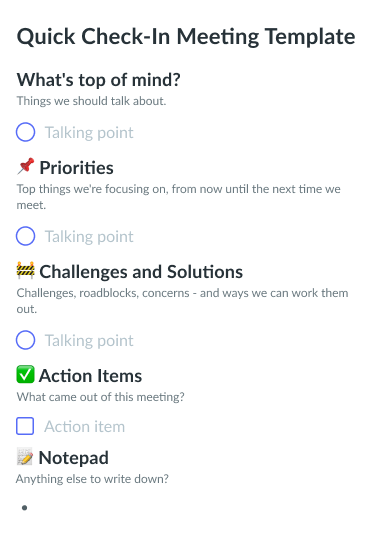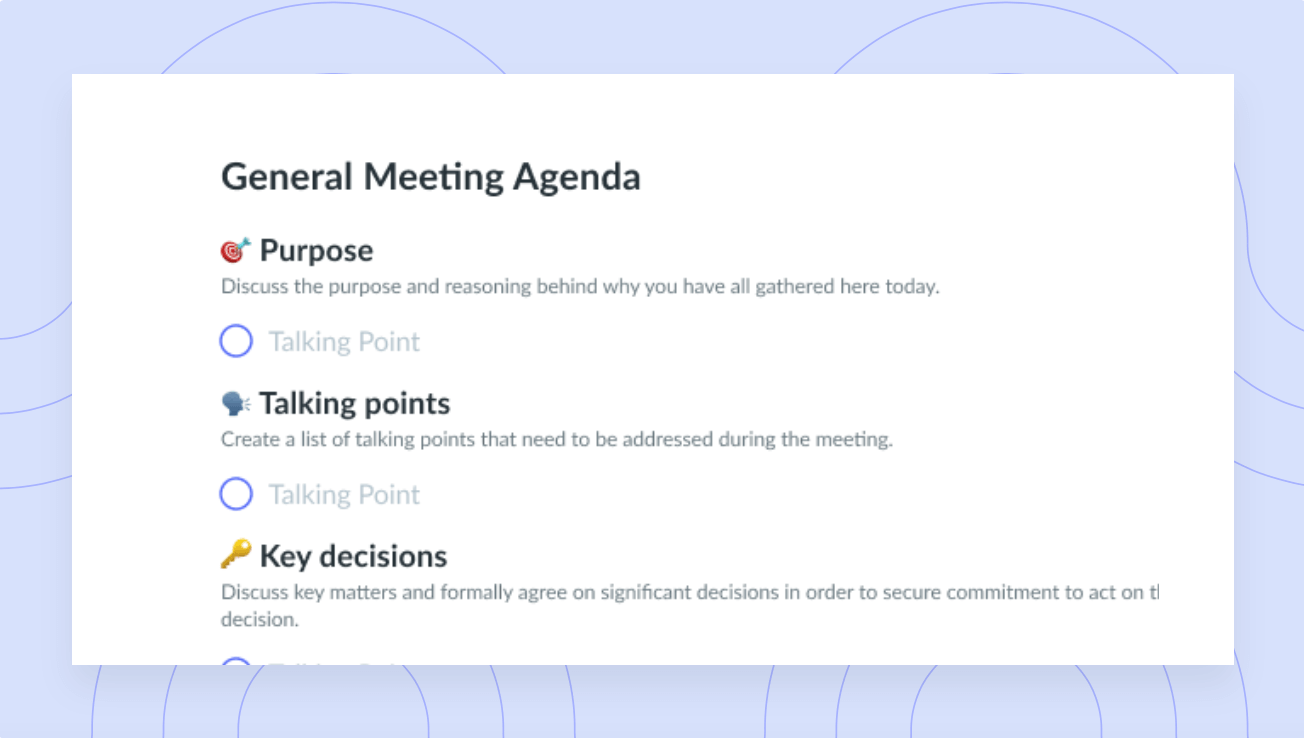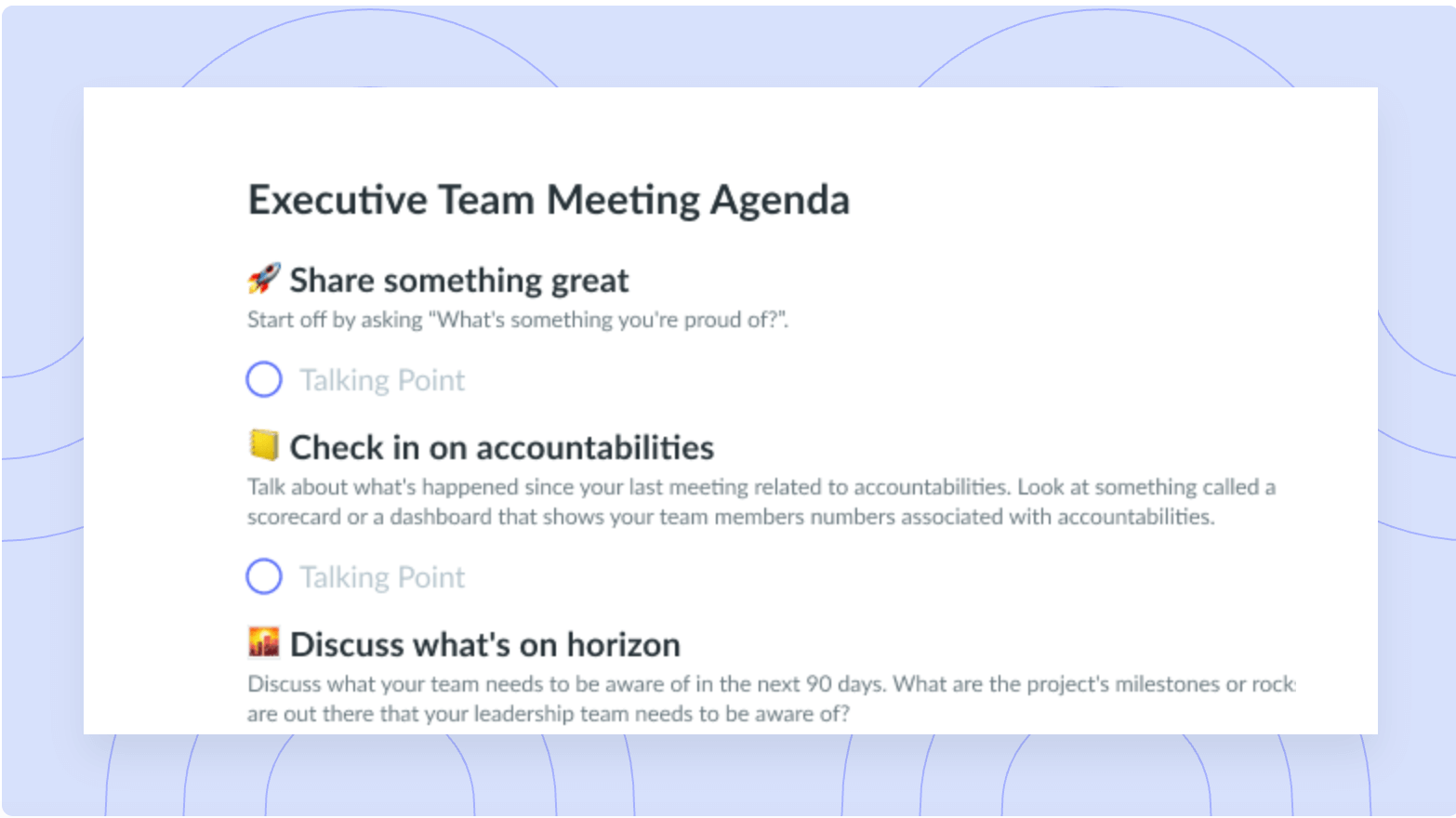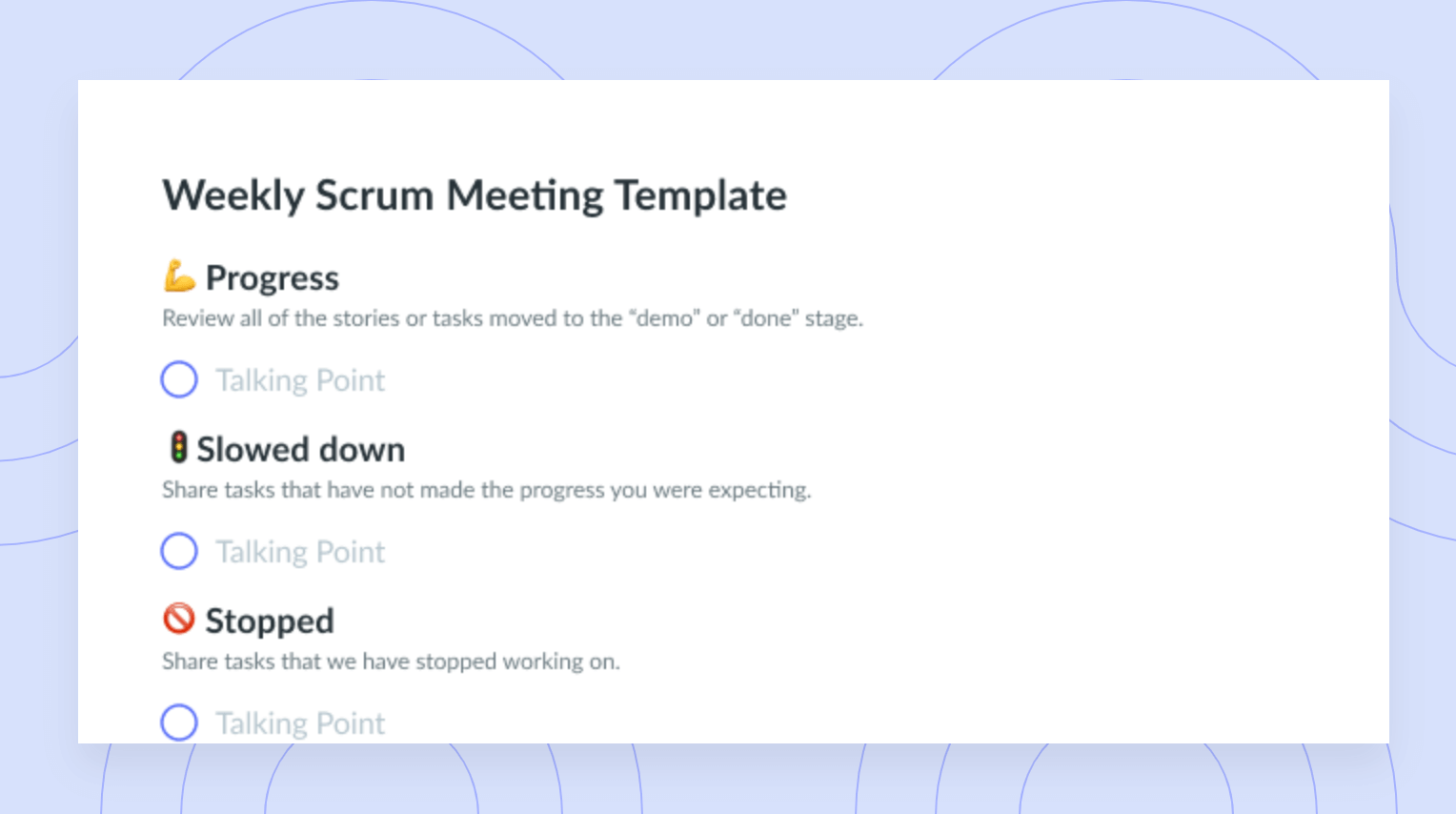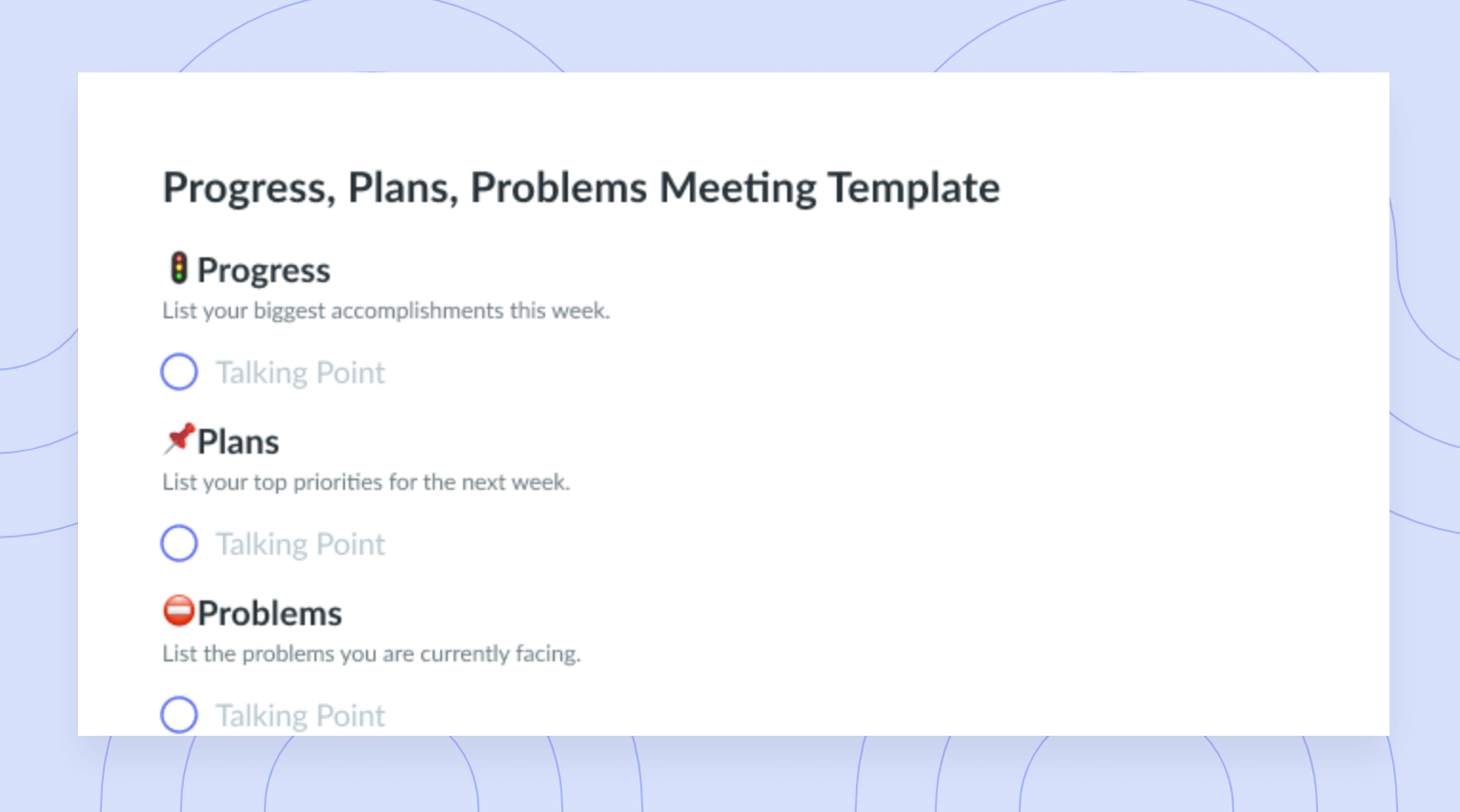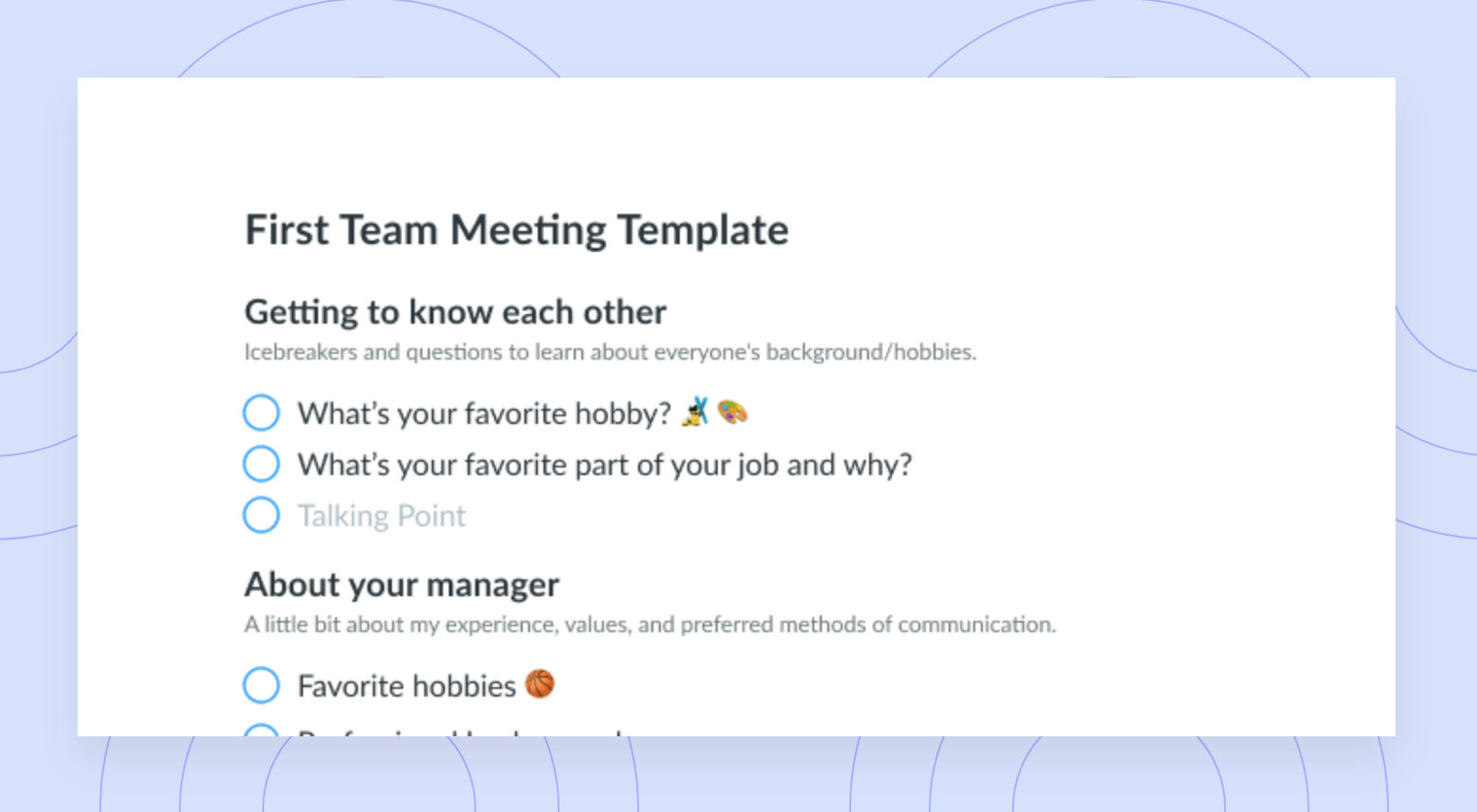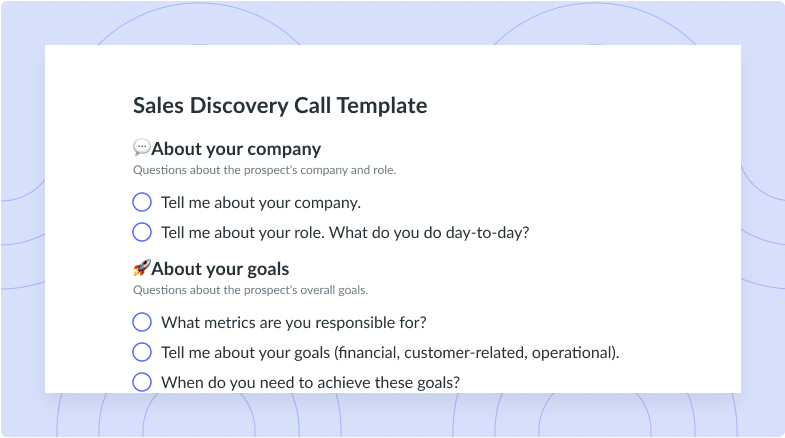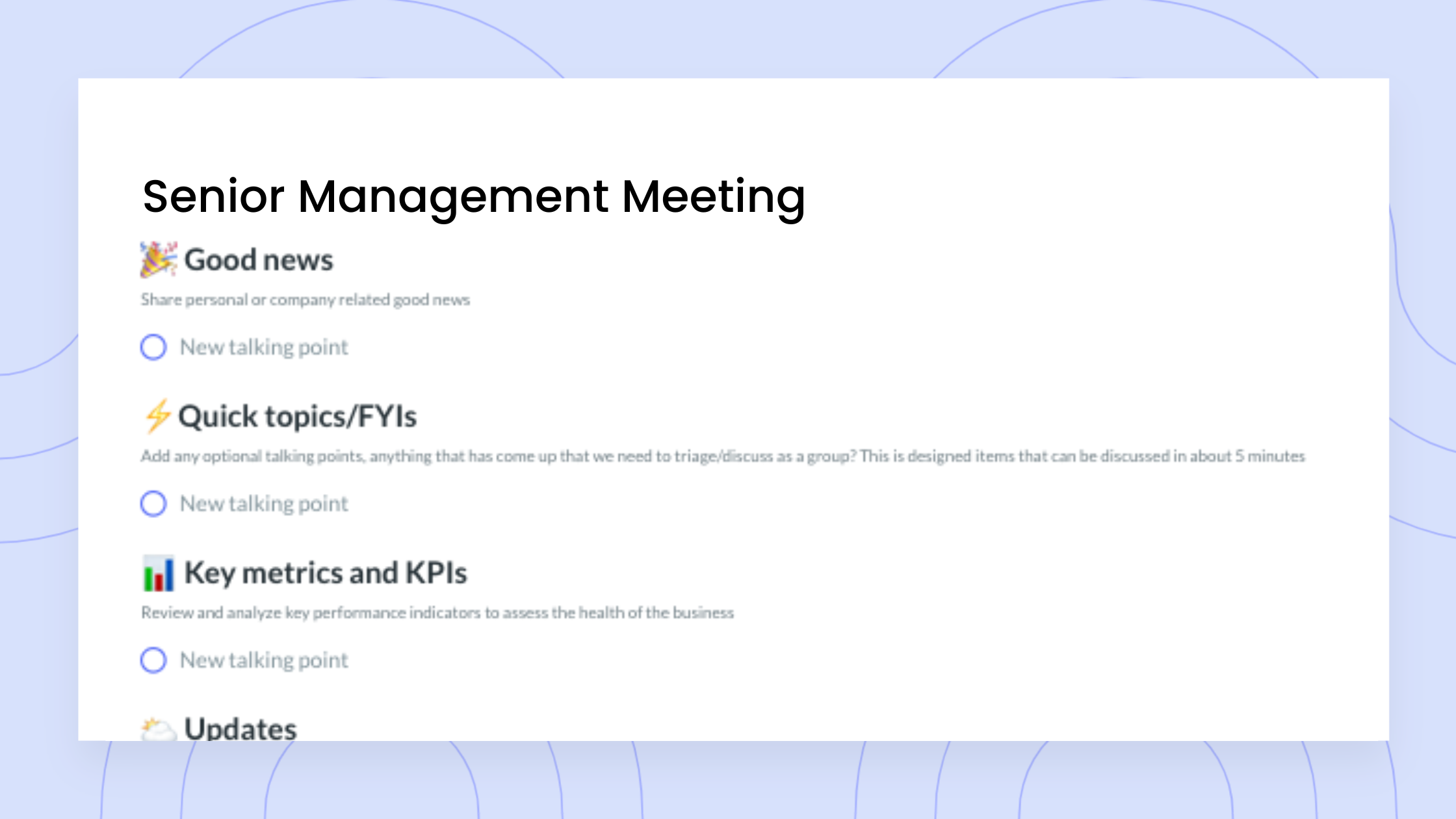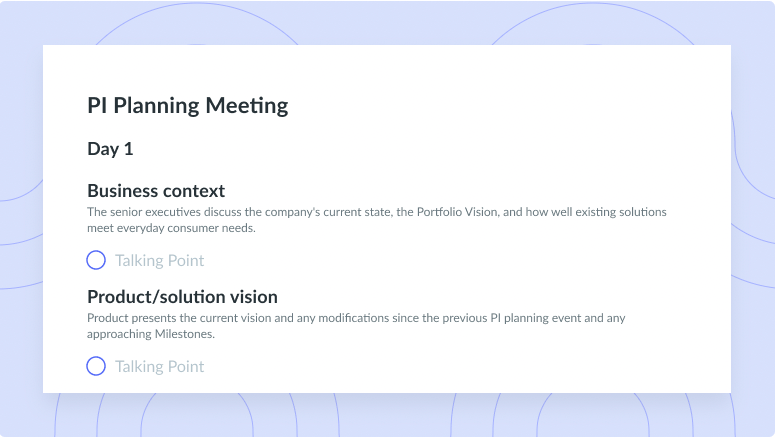A Guide to Program Management for Managers
Program management is fantastic for dedicating resources to a specific long-term goal in your organization.
One of the ways that companies plan strategically for the long term is by establishing objectives and key results (OKRs) that will help them grow faster, build a happier workforce, solve inefficiencies, or otherwise improve some aspect of the business performance.
When it comes to executing OKRs, individual teams and employees can be tasked with short assignments that align with the organizational goals. But some OKRs are ongoing, long-standing goals that are continuously working to be achieved and don’t necessarily have an known end date. Tackling these types of long-term goals through program management can be a challenge, but it’s what we’ll tell you all about!
What is program management?
Program management is an ongoing activity to align projects in the company to the overarching business objectives set by the organization’s leaders. Due to their nature, activities that continuously change and develop as the company grows. A program manager is assigned the responsibility of overseeing the program’s goals, planning, implementation, and execution. Programs are built custom to the needs of an organization, so they may affect one or more departments at a time. A common example of a program would be increasing engagement in the workplace, where a program manager would then continuously identify new plans and activities that will help the company increase employee engagement in different ways.
- Program management vs. project management
- Program management vs. work management
- Program management vs. product management
Program management vs. project management
Program management frequently gets confused with project management. Not only are they similar-sounding terms, but they have plenty of similarities that make them easy to mix up. Both program management and project management can involve a lot of stakeholders, require frequent reporting and budgeting practices, and need flexibility as requirements change over time. The biggest difference is that programs are managed almost endlessly for a moving goal while projects are entered into with a known end date and specific goal. For example, a project might be to “build a new software feature.” As soon as the feature is built, the project is done. Therefore, a lot of projects can be completed within any program.
Program management vs. work management
Work management is the practice of overseeing an employee’s workload. It is similar to program management in that the practice never has an end date since new projects always come in and managers are required to consistently review employees’ workloads to ensure they have enough to challenge them without risking burnout. However, work management focuses on a one-to-one relationship between the manager and the employee, whereas program management oversees a process or function across many people or teams.
Program management vs. product management
Program management and product management also have similar names and quite a bit of overlap which makes them easy to confuse. The goal of product management is to focus on one product within the company, ensure that it aligns with the target market’s needs, and coordinate the product launch with other internal teams. Like with project management, both product and program managers frequently communicate with stakeholders and other teams, build detail-oriented plans and schedules, and adjust requirements on the fly. But, product managers only focus on mini projects for one product, while program managers might interact with multiple product teams (or none at all) to achieve their goals.

Run efficient meetings, come to a decision, and get back to work
Level up your meeting habits to boost engagement and productivity with a collaborative meeting agenda. Try a tool like Fellow!
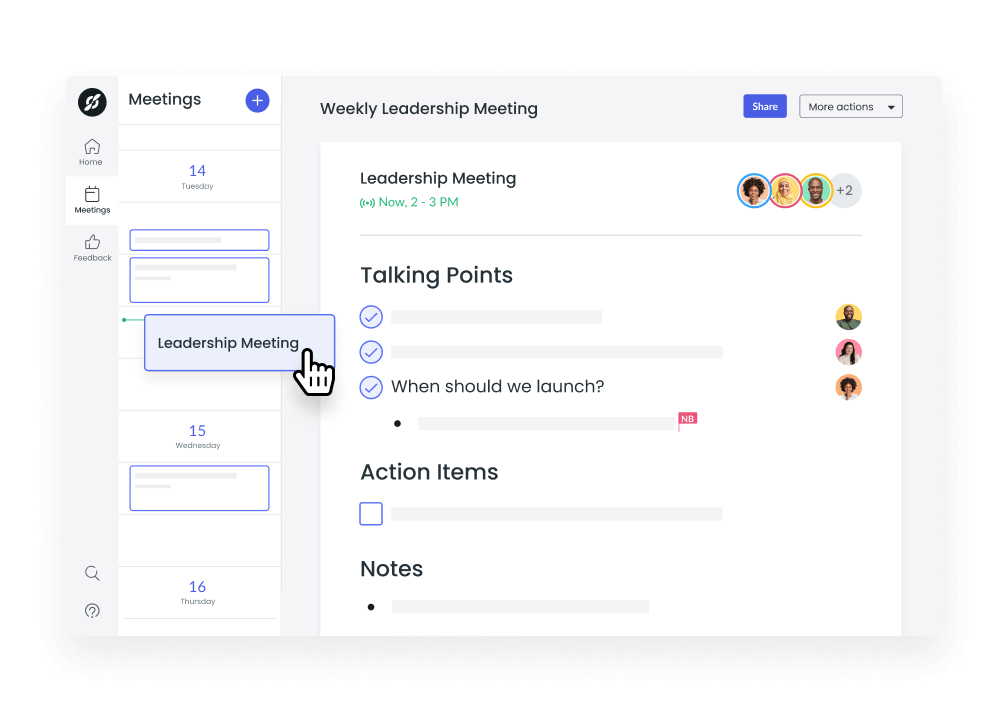
What do program managers do?
- Run the program
- Communicate with stakeholders
- Manage risks
- Support decision-making processes
- Build a resource management plan
Run the program
There is a lot of day-to-day work involved in running a program. Some of these tasks include building schedules, sending out communications, updating software, generating reports, and researching effective methods for executing or measuring the program.
A program manager is often the “ultimate” person who is solely responsible for the success of the program, so they need to be detail oriented, proactive, and able to help solve any challenges that arise. This doesn’t necessarily mean they are responsible for all of the execution of the tasks needed for the program to be successful, but they are the person strategically thinking through the plan and coordinating resources to ensure the plan can be implemented properly.
Communicate with stakeholders
The program manager is the main point of contact for any communications or questions that others have regarding the program’s operations. Most programs affect multiple teams or departments at once, so a program manager will collect required information from each team and inform them of updates as needed. There is also funding that comes from an executive team and reports that need to be delivered back to them to show proof of success for the program.
Manage risks
To ensure the success of their plans, a program manager needs to be proactive and thoughtful about assessing, mitigating, and preventing risks. In most cases, they will need to have backup plans for when initial plans fail.
They’ll also need to measure experimentative activities to determine how likely the effort is to actually help them achieve the program’s goal. For example, if an activity would be very expensive but not likely to generate the desired results, the program manager would likely turn down the opportunity.
When actual incidents do occur, the program manager is also responsible for directing the crisis plan or escalating it to a higher authority if needed.
Support decision-making processes
Decision-making processes like assessing risks, getting budget approvals, and assigning responsibilities to other team members are all important, and it’s necessary for the program manager to know what their own decision-making power is. As such, they’ll also need clear processes on to whom to direct questions and concerns about decisions that are beyond the program manager’s authorization level. At a minimum, they can always help bring the right decision maker into meetings and keep them informed.
Build a resource management plan
A resource management plan outlines the requirements for the program within a given period of time. Resources to be considered include financial (like the cost of resources), human capital (like employees, training, and benefits), and supplies (like software, hardware, and equipment). Even though programs run for an extended, continuous period of time, program managers need to budget resources in advance so the company can approve and deliver the resources on time. Program managers might also need to justify why certain resources are required by calculating expected returns from the investment.
The benefits of program management
- Fosters strategic alignment
- Identifies risks
- Simplifies resource allocation
- Connects projects with company goals
Fosters strategic alignment
Program management typically operates across multiple teams to help achieve a company-wide goal. Because of this dynamic, program managers have an opportunity to influence how many business functions operate. This creates strategic alignment across these teams and ensures that everyone is working together towards a common goal. As the company’s overarching OKRs change, program managers can quickly react and ensure the change is adjusted for across the organization.
Identifies risks
With long-term programs, a lot of time and thought goes into how the program can still be successful in a year or two (or more!) down the line. To ensure that level of long-term success, program management encourages the company to be proactive about identifying and mitigating risks to growth. Programs also offer a continuous hands-on effort across the organization, making it easier to notice and report potential risks to upper management.
Simplifies resource allocation
Teams might take different routes when it comes to implementing company goals, which means the resource allocation can be scattered or biased to one team over another. Program managers have the responsibility of setting resource requirements and ensuring that everyone receives what they need.
Setting check-in meetings with team representatives is an easy way for program managers to collect requirements and get feedback about the resources they’ve distributed. Fellow enables program managers to track these insights in one shared place which is accessible during and after meetings so that program participants can always refer back to it as needed.
Connects projects with company goals
By far one of the best benefits of program management is how it ties actual business activity to organizational performance goals. Only 16% of lower-level employees actually know their company’s OKRs. Having a dedicated person or team responsible for ensuring that a given OKR is met increases the likelihood of success because it improves communication across the company to everyone, including lower-level staff. This is important for ensuring that teams focus on the right priorities when determining which projects to start next.
Parting advice
Program management is an expansive and vague field, but that’s part of what makes it so great. There are endless ways to apply the practice to your business as long as you have organizational goals that you’d like to achieve in the long term.
One of the most important parts of managing any program successfully is tracking details and communicating effectively with stakeholders. And luckily there are great technology tools out there to help take some of this load off your back! Software tools like Fellow can create meeting agendas to make providing team updates seamless, automatically collect notes to make reviewing feedback fast, and track documentation so you can easily access it from within your video conferencing software in every meeting. Give it a try for free here!
